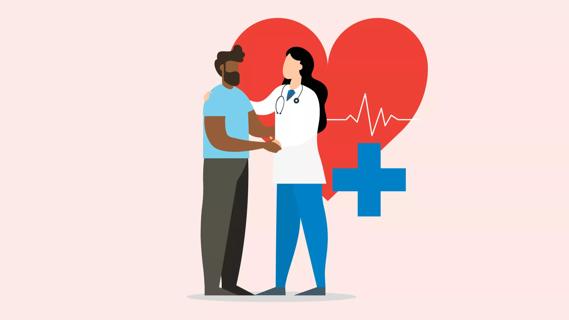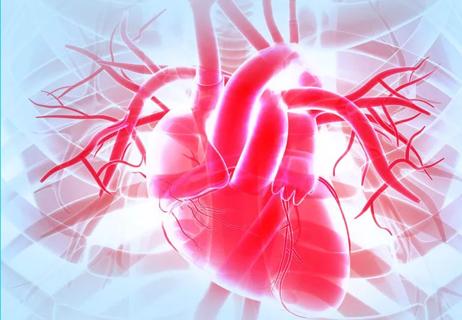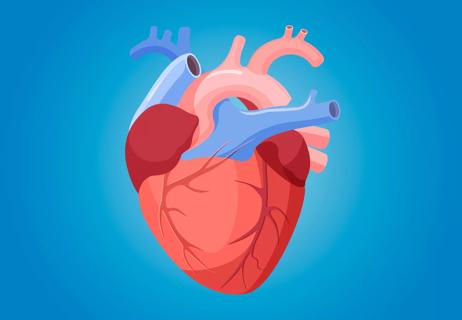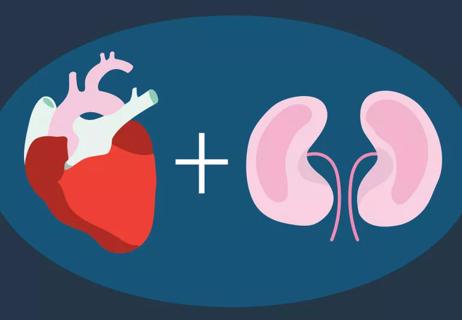Avoid smoking, eat a good diet and exercise to prevent your heart from aging prematurely

You may think that with each passing birthday, your heart turns the same age as you do. But in reality, your heart can sometimes age faster than you do.
Advertisement
Cleveland Clinic is a non-profit academic medical center. Advertising on our site helps support our mission. We do not endorse non-Cleveland Clinic products or services. Policy
According to the U.S. Centers for Disease Control and Prevention (CDC), half men and 20% of women in the U.S. have a heart that’s five years older than their chronological age. For people who are Black, the gap can be as high as 11 years.
Cardiologist Vikas Sunder, MD, explains how your heart ages over time, how to know if it’s aging prematurely and ways to keep your ticker healthy and young.
Because it’s possible for your heart to age faster than your chronological age, you can get an idea of what your “heart age” might be through an online heart age calculator. It’s a way to quantify your cardiovascular age based on different risk factors like high blood pressure, past health issues and family history.
Wondering why this matters? Well, aging hearts are more likely to have stiffer, calcified arteries, thickened and stiffer muscle tissue, abnormalities in their conduction system and dysfunctional valves.
Another more recent way to quantify your overall risk for cardiovascular disease is to use the American Heart Association and American College of Cardiology’s Cardiovascular Risk Calculator. The online tool uses similar metrics to determine your baseline risk over the next 10 years of having atherosclerotic cardiovascular disease.
Advertisement
An older heart age or an increased risk for heart disease is obviously not what anyone is hoping for, but the good news is that knowing this information can help you and your healthcare provider prevent future issues.
Factors like your health history can help give your healthcare provider an idea of what age your heart is and your overall risk for cardiovascular disease. The genes you inherit from your parents may play a role, but other lifestyle factors are important, too.
While some of these can’t be modified, you’re able to manage the majority. These risk factors include:
“We know that the most important way to prevent cardiovascular diseases like atherosclerosis, heart failure and atrial fibrillation is promoting a healthy lifestyle throughout life, and we take a team-based approach to help our patients achieve this,” shares Dr. Sunder.
You’re never too old to reduce your risk factors — and your heart’s age. Here are some things you can do to help your heart stay young:
Keeping your blood pressure in the normal range can minimize your risk. The same goes for diabetes and high cholesterol. Other diseases, like thyroid disease, as well as some medications, may weaken your heart. Have regular checkups, follow your provider’s treatment plan and take your medications as prescribed.
Your heart needs exercise to keep it in shape. Exercise increases your heart’s pumping power and helps deliver oxygen throughout your body. Regular exercise also helps keep weight and blood pressure managed and reduces stress. If you have an illness or disease that makes exercise difficult, look for a modified exercise program that’s more suited to your abilities.
“We recommend trying to aim for at least 150 minutes of moderate-intensity physical activity, for example, doubles tennis or brisk walking,” suggests Dr. Sunder.
Advertisement
Another way to show care for your heart each day is by following a healthy diet. This is because many of our food’s ingredients can help keep cholesterol and blood pressure levels balanced. But take heart — you don’t have to eliminate all of your favorite foods completely.
In fact, having a heart-healthy diet may just mean incorporating more things on your plate like whole grains, vegetables and lean protein. Dr. Sunder also recommends avoiding trans fats, as well as consuming saturated fats, salt and refined sugar sparingly.
This is absolutely necessary to protect your heart. Tobacco is very addictive, and quitting is hard: The average person tries seven times before succeeding. Your chances of success increase if you use three different stop-smoking aids simultaneously. Tell your provider you’d like to quit and ask for a plan — it’s one of the best things you can do to care for your heart.
Reducing your alcohol intake is another great way to keep your heart in good shape. Excessive drinking has been linked to cardiovascular conditions like high blood pressure, cardiomyopathy and a greater risk of stroke. Generally, it’s best to not exceed more than two drinks if you’re male and no more than one drink if you’re female.
Advertisement
Not sure how much is too much? Here’s what generally counts as “one drink,” based on the type of alcohol:
If you’re looking to change your alcohol consumption and don’t know where to start, talking to your healthcare provider is a great first step. They can provide personalized guidance based on your health status and drinking habits.
Sometimes, your heart may need a checkup even if you don’t feel like you need one. That’s why it’s good to get regular exams so a physician can test your blood pressure, triglycerides, fasting glucose and cholesterol, or just discuss any symptoms you may be having. This way your healthcare provider can help identify heart problems before they cause any serious issues.
While getting regular checkups is important, it’s also crucial to listen to your body when it’s telling you something is up.
If you develop any of these symptoms, contact a healthcare provider immediately:
As you age, your heart may need some extra care and attention. But there are ways to make sure you’re keeping your heart young and healthy. By working in healthy habits and listening to your body, you’ll help keep your heart strong. If you have any specific heart conditions, be sure to talk to your healthcare provider about the best ways to keep your heart healthy.
Advertisement

Sign up for our Health Essentials emails for expert guidance on nutrition, fitness, sleep, skin care and more.
Learn more about our editorial process.
Advertisement

It’s an emergency if the pain doesn’t go away, gets worse or you have other worrying symptoms

Age, sex and genetics are just a few factors that can affect your risk of developing coronary artery disease

Move a little more, eat a little healthier, sleep a little better and destress a lot

Having underweight, having overweight and having obesity can be dangerous for your heart

Your life depends on this incredible organ doing its job 24/7

Unlock the secret of your body’s hardest-working organ

What's good for one is good for the other

What you need to know about BMI, fasting glucose, triglycerides and more

Even small moments of time outdoors can help reduce stress, boost mood and restore a sense of calm

A correct prescription helps your eyes see clearly — but as natural changes occur, you may need stronger or different eyeglasses

Both are medical emergencies, but they are very distinct events with different causes